- Home
- Aharon Appelfeld
Suddenly, Love Page 5
Suddenly, Love Read online
Page 5
At that time his hatred for his fellow Jews was at its peak. He was certain that because of their distorted lives, they were damaged beyond repair. If he could, he would have burned down all the synagogues and yeshivas and all the factories and workshops where workers were exploited. He would also have condemned the arts-and-letters clubs to the flames. His closest friends were Ukrainians, half Jews who were disgusted by their Jewishness, and Polish exiles who brought with them from their homes a hatred of Jews.
At night Ernst would walk about in Czernowitz’s Jewish neighborhood. The jumble of grocery stores, dry goods stores, stalls, and synagogues seemed to him the embodiment of sickness and filth. These lairs have to be rooted out, he hissed to himself.
Every few months he would visit his parents. The liquidation of their store took a while. In the end, they sold it very cheaply to a real estate agent in the city. Ernst heard about it and raged. Strangely, he wasn’t angry with the agent who had exploited his parents’ situation but with his parents, who didn’t struggle to keep their bit of property. They remained the same. Actually, they became more confused, more immobile. Ernst would sit with them, pile up fatuous sentences, and then leave. After he left, his parents would sit frozen in their places, as though after a violent robbery.
In his youth Ernst had been sensitive to the landscape, to animals, to people in distress. But he now drove out all those feelings. He adopted an abstract, sociological way of speaking, using statistics and blunt statements. Personal talk felt like a luxury to him. Identification with an individual weakens one. One has to see the general picture, the goal, and at this time the goal was Birobidzhan, the province in Siberia that the Soviets had established for the Jews. That was his soul’s desire. When he spoke to young people, he promised them a healthy, normal life, a life filled with joy and usefulness to society. Quite a few of them, intoxicated by his speeches, left their elderly parents and wandered off into the unknown.
Later in life Ernst would say to himself, What did I do? What demon directed me then? Hatred that enthralled one’s youth cannot easily be uprooted. Years would pass before he could picture his parents, and even more time would pass before he could envision his grandparents. Now he is approaching the end of his journey, and night after night he expects them to reveal themselves to him. When a crack appears toward morning and a bit of landscape rises up from the depths, his body relaxes slightly. But on some nights he sees only his parents’ silence, which has been distilled even further so that there is no longer any separation between them and their silence, and he knows that it is in their marrow. He sees it in their faces: There is nothing to say. We won’t change. This is how we were, and this is how we will always be. When Ernst hears their silence, he shrivels up and trembles.
15
ABOUT A YEAR BEFORE THE WAR CAME TO HIS CITY, ERNST married Tina, an orphaned Jewish girl whom the Party had recruited. She had worked with Ernst for some time, and he was impressed by her modest, straightforward conduct. One time he sat with her in the canteen, and they discussed the works of Gorky. She said things he didn’t expect to hear. Evidently her reading wasn’t mechanical, and she was highly sensitive to details. She wasn’t impressed by Gorky’s ideas about society but by his ability to observe the minutiae of human suffering—especially in children and, even more, in old people.
That conversation in the canteen opened his heart, and something of his old self returned to him. Ernst and Tina used to meet and talk about books and writing, about what was important in life and what was external to it. Tina didn’t doubt communism, but her true interest wasn’t in reforming society but in improving the life of the individual. At first Ernst tried to remind her that this wasn’t the opinion of the Party. Tina was alarmed and apologized. Later he stopped reproving her. Her insights and charm captivated his heart.
The wedding ceremony was held in the Party’s offices, in the cellar. The Party secretary himself conducted it. Ernst and Tina swore allegiance to the Party and to Stalin. Afterward they drank a toast and recited the familiar slogans, and the activists recited the poems of Vladimir Mayakovsky.
Those were times of unexpected happiness. Every day Ernst discovered a new side of Tina, and every day he knew that only Tina could restore the essence he had lost. How this would happen, he didn’t know. He would remember the days with her as a time of bright sunlight, and what came afterward as prolonged darkness.
When their daughter, Helga, was born, Ernst’s happiness was boundless. The Party held a small celebration in the cellar. Again they sang, mocked the old world, got drunk, and cursed the police and collaborators.
After that they were hardly ever together. War was raging in Europe, and Ernst was sent on secret missions. In the spring, when the Romanian Army arrived in Czernowitz, the heads of the Party were ordered to flee across the border to the Soviet Union. Ernst parted from Tina hastily. He was sure that he would return in a matter of days. Tina felt differently. She wept and kissed his hands. Then came the days of the trains and the bombings. He transferred from train to train. If one didn’t arrive on time or was canceled, he marched on foot, joining the refugees. Every day took him farther from Tina, and every day he saw new suffering. But Ernst was confident in the victory of the Red Army and in his rapid return to her. In a village near Moscow he was conscripted and immediately sent to an officers’ course. The courses were short and accelerated, meant mainly for the Party faithful.
After Czernowitz was occupied by the Romanians and Germans, the Jews were imprisoned in a ghetto. Then the transports to Transnistria began. Ernst eventually learned that Tina and Helga had been among the first to be deported.
Although it had been many years since he had last seen them, when Ernst began writing about the war, he sometimes saw Tina and little Helga clearly, as if they weren’t mother and child but two girls holding each other’s hands. The big girl says to the little one, Soon we’ll get to the water, and you’ll be able to drink as much as you want. It was hard for him to uproot that picture from his mind. It appeared to him from various perspectives by day and by night.
Ernst also saw his parents in a long convoy of deportees. His father holds his mother’s hand and says, as he used to, There’s nothing to worry about. Everything is behind us.
And what about the debts? his mother asks.
In wartime, debts are forgiven, says his father wearily.
I don’t understand, says his mother, and her face is suddenly concealed.
From then on they don’t talk. They walk hand in hand with the rest.
Winter is at its height, but suddenly patches of earth peek out from the snow, as in the spring. That’s an illusion, of course. But the snowstorms have stopped, the ice on the river has broken up, and the water rushes. The soldiers hurry the deportees with blows and shots, so they will get to the raging river. The deportees know what is in store for them. They don’t try to escape. When they are close to the river, they remove their backpacks. With their loads lightened, they are shoved into the water by the soldiers and by the collaborators. When they are deep in the river, Ernst’s father stretches his neck, the way he did every morning when he shaved.
16
THE WINTER HAS BECOME HARSHER, AND IRENA’S EFFORTS to lift Ernst from the depression into which he has sunk all fail. She stands before him and lists all the dishes she has prepared. If he doesn’t respond, she recites the list again, and if he doesn’t respond to that, she knows she mustn’t disturb him further.
Ernst writes until late at night and sleeps no more than four hours. “At my age, there’s no need for too much sleep.” His opinion is firm. Irena feels that four hours of sleep are not enough. True, Ernst dozes off in the afternoon, but he doesn’t sleep. “Don’t pay attention to me,” he says when depression assails him. Irena complies with his request and doesn’t enter his room unless he calls her. In her heart she knows that Ernst’s depression arrives as a stubborn and intransigent wave and that until it passes he will lie curled up in bed.
>
Last fall Ernst took some bundles of manuscripts out of a drawer and said to Irena, “These are the books I wrote and never finished.”
“One day you’ll sit down and finish them,” Irena said, and hoped he would not contradict her.
“I’ll never finish them.”
“Why not?”
“Because they’re unworthy.”
“I don’t understand,” she said, frightened at his words.
Ernst struggles with life and with writing. He cannot change his life, but he is trying to give a new form to his writing. It is no longer descriptions of experiences and a mass of details, but only what is most necessary. For years he tried to write about human beings without any ethnic traits. He called his heroes Eldorado, Homer, and other names taken from ancient myths. They fought for justice, loyalty, and purity. But since Irena’s arrival in his home, many things in his life have changed. For years he tried to avoid contemplating his life, to ignore it, to build floating towers on it. Now his life is coming back to him like a spirit returning from the dead, and he knows that it seeks correction.
Rain falls without pause, the drops covering the windows. Most likely Ernst won’t go out to the café today. He’s sitting at his desk, copying. When Ernst copies something, it means he has a passage or a chapter that he wants to preserve. When he makes a copy, his handwriting is clear and without flourishes. He sits at his desk until noon.
“There’s fresh vegetable soup,” Irena announces ceremoniously.
“Thank you.”
Irena knows that there’s nothing like vegetable soup to lift Ernst out of the darkness. His struggle against depression is fierce. There were times when he lay in bed all day, but now Irena won’t allow him to give in to his pain. She invents all sorts of ruses and temptations to bring him to the table. Good food, she believes, can extricate him from his distress.
Sometimes, to make him happy, Irena wears her embroidered blouse and matching skirt, and she puts on makeup and earrings. Ernst is very pleased to see Irena in festive clothing.
I’ll do whatever you ask me to do, she wants to tell him. Ernst usually refuses to accept help. Even when he’s weak, he doesn’t want her to support him, not to mention wash him. Ernst is a proud man, and his pride is evident in his erect bearing. After the operation he was forced to accept assistance, but only to a slight degree. I’ll live as long as my legs can carry me. If I can’t walk, life is meaningless. When he goes out, striding confidently along, his weakness is not visible.
Irena serves Ernst soup and asks, “Is it good?”
“Very tasty.” That’s the answer she likes to hear. It’s a sign that the depression is lifting and that the light will soon return to his face.
“How is it outside?”
“Rainy and windy.”
“But now it seems to have stopped.”
As Ernst sits and sips the soup, his usual demeanor gradually returns, and a thin, ironic smile pinches his lips. Irena knows that smile very well. In a moment he will make some critical remark about himself or his situation. After lunch he shaves, dresses, and says, “I’m going to the café.”
“It’s cold out.”
“I like the cold.”
Ernst puts on his gray suit and his winter coat, wraps a thin woolen scarf around his neck, and says, “See you later.” After he leaves Irena feels a secret pride in her success, and for a long while she is wrapped in joy.
17
ERNST WROTE LAST NIGHT AND WAS PLEASED WITH WHAT he wrote. When he is pleased, his face opens up, and his weakness isn’t apparent. He shows Irena things that she didn’t expect to see: his city in its seasons, the hidden little parks where he loved to walk after school, and the tiny kiosks that looked like chapels, where you could buy a glass of cold lemonade or a cup of ice cream and from there go directly to the municipal library. High school was his racecourse. There he brilliantly demonstrated not only his knowledge but, mainly, his ability to think. French, literature, and philosophy were the subjects he loved, but he was also outstanding in the sciences. The teachers favored him, and everyone was impressed by his abilities and courtesy. No one doubted that he would become a university professor. How strange, he would later say to himself, that I sold my soul to a false faith. Communism, which took hold of him while he was in high school, halted his progress.
Irena has made Ernst breakfast: thin toast, low-fat cheese, and vegetables. She tries to vary his meals. This time she has added black olives and homemade plum preserves.
“You should sit and eat with me,” Ernst says in a commanding tone.
“I enjoy serving you.”
“But you also deserve breakfast.” He has demanded this on several occasions, but Irena doesn’t feel comfortable sitting next to him.
When it rains hard and the weather is very cold, Ernst lies in bed and reads the Bible. He discovered the Bible two years ago, and since then he has been charmed by the rhythm and the economy of the text. He reads a chapter or two in Hebrew every day, assisted by Martin Buber’s translation, which sounds too clever in comparison to the clarity of the original.
Yesterday Ernst recalled that three months before his thirteenth birthday, his father brought home a private tutor to prepare him for his bar mitzvah. The tutor was an old man whose eyes abounded with good-hearted gentleness. The old man grasped the Bible in his two pale hands, looked straight into Ernst’s eyes, and said, “This is our holy Torah, which we received from heaven. There are marvelous things in it. Our fathers watched over it with vigilance.” He spoke to Ernst in German mixed with Yiddish, which detracted somewhat from the value of his words. At that time Ernst was far from Jews and Judaism, and the old man’s words, full of conviction, sounded to him like a counterfeit appeal, if not a deceitful one.
A few of the lessons amused him, but before three weeks had passed, Ernst’s patience wore out. The sacrificial rituals seemed to him like a slurry of blood that belonged to a prehistoric age. He didn’t hide his opinion from the old man.
“You mustn’t talk that way,” his tutor replied. “God, the Master of All, hears you.”
“I’m not afraid. God is an invention of primitive man. We have been liberated from that invention.”
Ernst spoke to him as one speaks to an ignoramus. Upon hearing those impertinent words, the old man hung his head. After he recovered he turned to Ernst and said, “I see that you don’t want to learn our holy Torah.”
“No.” The answer came without delay.
The old man tried another tactic. “You can’t be a Jew without Torah,”
“I willingly give up that title.”
The old man said nothing further. He rose from his chair and headed toward the kitchen, where Ernst’s father was. After hearing what the old man had to say, Ernst’s father paid him, apologized, said a few words about the younger generation, and accompanied him to the door.
“I see that the Torah doesn’t interest you,” Ernst’s father said to him later.
“Correct.” Ernst was brief.
“You can learn history from the Torah.” His father tried to speak in the language of Jews who had attended high school.
Ernst’s reply was once again brief. “You learn history from history books.”
His father knew that in matters of education, he would never have the upper hand.
That distant memory, which had lain dormant within him for years, flooded back, and Ernst sees clearly some forgotten objects in his house, such as the washboard that hung in the back of the kitchen and the braid of garlic that was next to it. It appears as though the house that he had abandoned with contempt and thoughtlessness has not faded from his memory. The image of the old man, which had been revealed to him at night, makes him happy, like a gift that has come to him from a distance. For a moment he wants to tell Irena about his happiness, but he realizes right away that the matter is complicated and that this isn’t the right time to talk about it. “How is it outside?”
He speaks to Irena distractedly
.
“Cold.”
“I’ll wear my winter coat.”
Ernst surprises Irena again and again. A week ago, before going out to the café, he turned to her and asked, “Am I dressed well enough?”
“Absolutely.”
“Sloppiness doesn’t become a man of my age.”
Irena irons his clothes very attentively, but she leaves to him the choice of what to wear and when. Ernst is sensitive to color. She has often seen him lay a shirt on his coat to see whether the colors match. He likes vivid colors, but not those that are too conspicuous. When Ernst goes out in the morning, he leaves some of his essence in the house. Sometimes Irena speaks to the absent Ernst, telling him something that has occurred to her. How strange that it’s easier for her to speak to Ernst when he’s not at home.
18
AFTER DAYS OF CONTINUOUS WRITING, ERNST IS ONCE again attacked by depression. His appetite decreases, and his face clouds over. He utters incomprehensible words, cancels plans that he was enthusiastic about just the other day, and more than once Irena hears him say, “I have to burn everything.” When she hears those words, Irena is choked with fear.
The depression can last a week, sometimes more. Irena comes earlier in the morning and leaves later. She is so tense on his dark days that sometimes she forgets a pot on the stove or the clothes in the washing machine.
When depression overtakes Ernst, Irena tries to be unobtrusive by not moving utensils or furniture. She would very much like to say to him, You mustn’t curl your body up in bed. Curling yourself up shortens your breath. You have to lie on your back, with your head raised, and let the air flow freely. But of course she doesn’t say it. Sometimes Ernst raises his head, and with a voice not his own, he grumbles, “I haven’t grasped the main thing yet. The details are deluding me.” Irena knows that he’s talking to himself. Depression has darkened his spirit, and nothing that he’s written pleases him.

 Long Summer Nights
Long Summer Nights Tzili
Tzili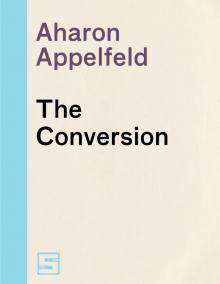 The Conversion
The Conversion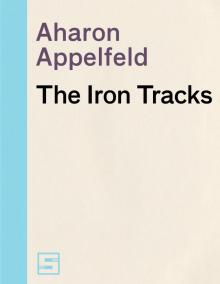 The Iron Tracks
The Iron Tracks All Whom I Have Loved
All Whom I Have Loved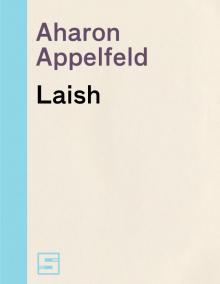 Laish
Laish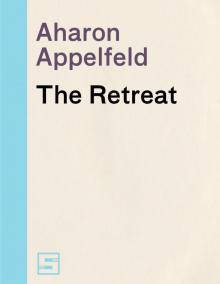 The Retreat
The Retreat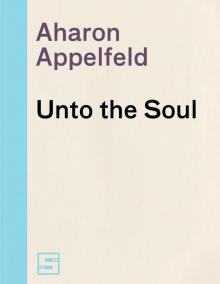 Unto the Soul
Unto the Soul Blooms of Darkness
Blooms of Darkness The Man Who Never Stopped Sleeping
The Man Who Never Stopped Sleeping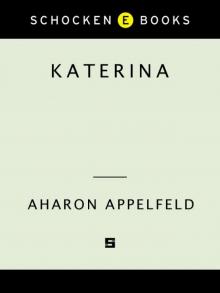 Katerina
Katerina Until the Dawn's Light
Until the Dawn's Light Adam and Thomas
Adam and Thomas Suddenly, Love
Suddenly, Love